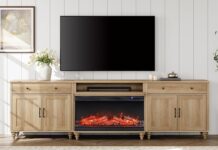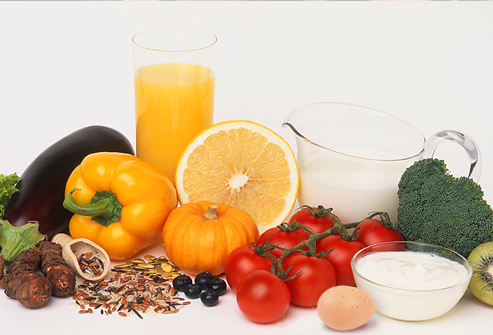 We’ve entered the New Year and it’s an opportunity to motivate you to accomplish those resolutions. That being said, I assure you that this article won’t be on how to lose weight. Since, I got a muffin top, I can’t preach about shedding the extra pounds. However, you won’t be seeing me eating nachos on my couch while watching Netflix. The thought has crossed my mind many times and I don’t judge those who do. But I’ve always aimed to live a healthy life expect on Saturday night. This series examines simple cooking tips for a special diet. In the first installment we’ll look closely at the gluten free diet.
We’ve entered the New Year and it’s an opportunity to motivate you to accomplish those resolutions. That being said, I assure you that this article won’t be on how to lose weight. Since, I got a muffin top, I can’t preach about shedding the extra pounds. However, you won’t be seeing me eating nachos on my couch while watching Netflix. The thought has crossed my mind many times and I don’t judge those who do. But I’ve always aimed to live a healthy life expect on Saturday night. This series examines simple cooking tips for a special diet. In the first installment we’ll look closely at the gluten free diet.
I’d like to be straight with all of you, I don’t think gluten free is the answer for losing weight. But I do know that celiac disease is a serious autoimmune disorder that affects about 1% of the population and virtually destroys the intestinal tract. For people with celiac, they must adopt both a gluten and wheat free diet. However, there’s a difference between the two, which I wrote in details here.
Thankfully, I’m not celiac; but I’m better off not eating wheat. Many people believe that the solution for cutting wheat isn’t having gluten free bread instead. For the most part, gluten free-products are made with refined, enriched grains and starches, meaning they’re low in fiber, iron, foliate, riboflavin, calcium, vitamin B12, phosphorus and zinc. For celiac, I could only imagine how tough it would be to give up wheat. For those who have a wheat intolerance, I’m sure cheating on bread once in while won’t hurt anyone. Why does bread have to be so darn delicious? However, there are great flour alternatives that have high nutritional value such as: Coconut, Almond, or Quinoa flour. I get that it isn’t the same as the warm bread you get at a steakhouse.
Baking with gluten free flour is simple but the recipe isn’t going to be the same as the regular. Unless you are good at math (which I’m not) get out your calculator.
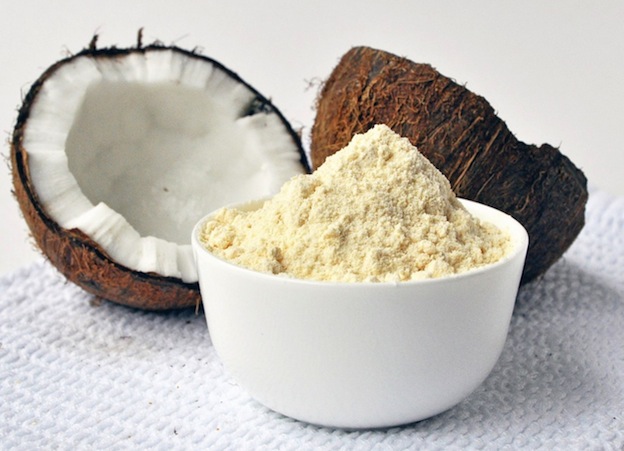 Coconut Flour
Coconut Flour
It’s high in fiber, low in carbs and holds a lot of protein. But it isn’t a 1:1 ratio with regular flour. According to Gut Health Project, you’ll need 1/4 cup coconut flour for every 1 full cup grain flour. However, this flour is super absorbent and it’ll dry if you don’t use a lot of eggs or other liquid ingredients. I’ve never used this flour but my friend who is celiac and bakes all the time says it’s hardest flour to work with. If bread made with coconut flour intrigues you, check out this recipe from Nourished Kitchen.
|
Ingredients:
|
Directions
- Preheat the oven to 350 degrees Fahrenheit.
- Combine coconut flour, ghee, eggs, honey and unrefined sea salt together.
- Mix all the ingredients together until they form a smooth paste with no clumps.
- Grease a loaf pan.
- Spoon the mixture into the loaf pan, and bake in an oven preheated to 350 degrees Fahrenheit for 40 minutes.
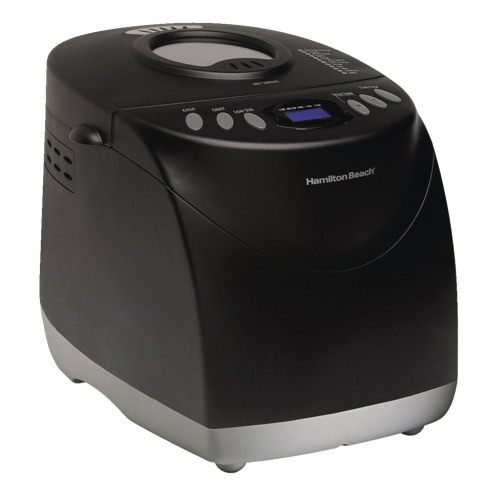 Making bread isn’t easy which is why you may want to invest on a Bread Maker. I like this one from Hamilton Beach because it includes a gluten free setting in addition to French, Whole Grain and Basic bread.
Making bread isn’t easy which is why you may want to invest on a Bread Maker. I like this one from Hamilton Beach because it includes a gluten free setting in addition to French, Whole Grain and Basic bread.
Almond Flour
This flour has the same benefits as eating a handful of almonds. It’s best used for baking cookies, pastries or anything sweet. I’m assuming portion control is key here (especially for calorie counting) but check out this chart from Elana’s Pantry comparing the nutritional value. It’s got a lot of protein and fiber but as must nuts have is a lot of fat. Overall this flour is a bit more high maintenance that the others. You must refrigerate or freeze after opening the package. And there is no basic ratio between regular flour and this one. Which it’s important to check out the recipes using almond flour from trusted food writers. Check out this Paleo Banana Bread recipe.
|
Ingredients:
|
Directions
- Place bananas, eggs, vanilla, honey and shortening in a food processor
- Pulse ingredients together
- Pulse in almond flour, salt and baking soda
- Scoop batter into a greased 7.5 x 3.5 magic line loaf pan
- Bake at 350° for 55-65 minutes
- Remove from oven and allow to cool
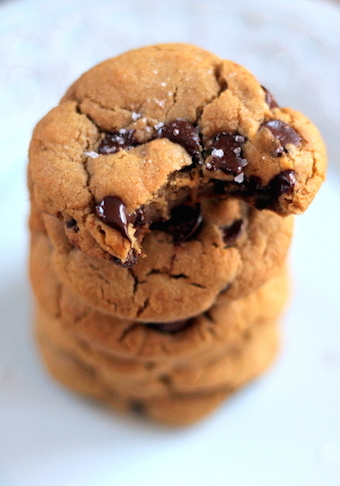 Quinoa Flour
Quinoa Flour
I love quinoa even if it isn’t in a flour base. This is the best grain to eat especially to curb and carb craving. Perfect for someone following a gluten free diet. As for quinoa flour, it also consists of a high protein value. In terms of baking measurements, for every cup of flour, you can use half a cup of quinoa.
If you want to be naughty but somewhat good, check out this chocolate chip cookie recipe from Ambitious Kitchen. I’m a cooking monster, which is why I’m sharing this one. And another reason why I haven’t accomplish my common resolution of losing weight.
|
Ingredients:
|
Directions
- Preheat oven to 350 degrees F.
- In large bowl whisk together quinoa flour, baking soda, and salt; set aside.
- In bowl of an electric mixer beat together melted coconut oil and brown sugar until smooth. Add in egg, egg yolk, and vanilla; beat again for 2 minutes or until smooth and creamy.
- Add in flour; and mix on low speed until just combined. Slowly add in chocolate chips.
- Roll dough into 1 inch balls and place on cookie sheet leaving 2 inches apart. Bake 8-11 minutes or until edges just being to turn a golden brown. Do not over bake; we don’t want crispy cookies here! If you noticed that your cookies are baking flat, then you may want to chill your dough for 10-20 minutes.
- Remove from oven and let cool at least 5 minutes on baking sheet. The cookies will need to set and will be very fragile at first so you have to be a little patient for the edges to harden a bit before removing them. Once the edges and bottom harden a bit, transfer to wire rack to finish cooling. Makes 22-24 cookies.
Bonus Baking Tips:
Overall, baking with gluten free flour requires experimenting and you might not get it right the first time. But I gathered a few tips from SheKnows.com for you to keep in mind at your next baking jam:
– Baking Powder: Add 1-2 teaspoon of baking power for 140 grams of gluten free flour (this would help whatever you are baking to rise as nice as the white flour)
– Egg White: If you feel your dough is too dry before baking, add extra egg white.
– Brown Sugar: Use brown sugar over the white to help add moisture.
Visit me next week as my next article will focus on cooking tips for diabetics.


